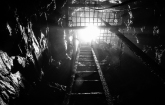Frost & Sullivan: Significant Infrastructure Growth Expected for Botswana over the Next Decade
- Transport and energy & power segments to expand the fastest
CAPE TOWN, South Africa, Sept. 5, 2012 /PRNewswire/ -- The need to diversify Botswana's economy and expansion of the mining sector will drive infrastructure development in the country. As a result, the transport and energy & power sectors are expected to see the most growth over the next decade. As the majority of projects are financed by the government, and the country is heavily reliant on revenues from the diamond mining industry, the economic recession continues to be the greatest restraint for infrastructure development.
New analysis from Frost & Sullivan (http://www.environmental.frost.com), African Infrastructure Tracker: Botswana's Infrastructure Sector, finds that there will be significant growth in the transport and energy & power infrastructure sectors in Botswana. This is as a result of the government's aim to expand the mining industry and stimulate economic growth by diversifying the economy.
"The discovery of considerable coal reserves is one of the greatest drivers for the development of improved transport infrastructure, and capacity building in the energy & power sector. Botswana's Morupule B power station is currently operating at 110% capacity and the country imports 97% of its energy requirement," noted Frost & Sullivan's Environmental & Building Technologies Industry Analyst, Sarah O'Carroll. "The government is also trying to diversify its economy, in order to decrease its reliance on the mining sector. This is also a significant contributor to investment in infrastructure."
Botswana's rail network is in desperate need of expansion. The country has a single North-South rail corridor with three small branches, connecting only two of its neighbours, Zimbabwe and South Africa. An estimated $8.4 billion will be invested in expanding the railway network. This investment will see Botswana connected to Namibia and Mozambique through two new rail links, allowing the efficient transportation of minerals for export. It is hoped that the improved rail network will also transform Botswana into a transport hub in southern Africa, with the country facilitating trade in the Southern African Development Community (SADC).
O'Carroll stated that transport infrastructure had not been upgraded and extended since the 1980's, increasing both the cost and time to transport manufactured goods and raw materials. Poor infrastructure in these sectors has ultimately restricted the development of new industries and the expansion of existing ones.
Infrastructure development in Botswana is driven by the government. The economic recession has reduced both government revenues, due to sharply decreased diamond prices, and foreign direct investment. This has greatly restricted the government's ability to carry out new infrastructure projects.
"The construction market contracted sharply during the economic recession," explained O'Carroll. "Although the country's growth rate is above 7%, the effects of the recession still linger and investors are reluctant to invest in new infrastructure projects. Government funds have been diverted to priority sectors and many ongoing projects have been put on hold, with future projects being delayed until such time as funding becomes available. The government is now also considering public-private partnerships as a means to develop infrastructure in Botswana."
Despite the challenges facing infrastructure development, there are over 30 multi-million dollar projects ongoing in Botswana. Investment in the transport and energy & power sectors accounts for 84.7% of $12.81 billion of infrastructure development in the country.
"The Chinese have a high success rate of winning infrastructure project tenders in the country," said O'Carroll. "Because public funds are typically used for these projects, price is a key determinant in evaluating tenders. The Chinese' ability to undercut costs gives them a key advantage in the selection process. A company's ability to complete projects timely and within budget will, therefore, be crucial to winning tenders for infrastructure development projects in Botswana."
If you are interested in more information on this study, please send an e-mail with your contact details to Samantha James, Corporate Communications, at samantha.james@frost.com.
African Infrastructure Tracker: Botswana's Infrastructure Sector is part of the Environmental & Building Technologies Sector, which also includes Infrastructure research in the following markets: Kenya, Uganda, Tanzania, Namibia, Ghana, Nigeria, Mozambique, Zambia, South Africa's Transport Infrastructure sector, South Africa's Social Infrastructure sector and South Africa's Water and Wastewater Infrastructure sectors. All research included in subscriptions provide detailed market opportunities and industry trends that have been evaluated following extensive interviews with market participants.
About Frost & Sullivan
Frost & Sullivan, the Growth Partnership Company, works in collaboration with clients to leverage visionary innovation that addresses the global challenges and related growth opportunities that will make or break today's market participants.
Our "Growth Partnership" supports clients by addressing these opportunities and incorporating two key elements driving visionary innovation: The Integrated Value Proposition and The Partnership Infrastructure.
- The Integrated Value Proposition provides support to our clients throughout all phases of their journey to visionary innovation including: research, analysis, strategy, vision, innovation and implementation.
- The Partnership Infrastructure is entirely unique as it constructs the foundation upon which visionary innovation becomes possible. This includes our 360 degree research, comprehensive industry coverage, career best practices as well as our global footprint of more than 40 offices.
For more than 50 years, we have been developing growth strategies for the global 1000, emerging businesses, the public sector and the investment community. Is your organisation prepared for the next profound wave of industry convergence, disruptive technologies, increasing competitive intensity, Mega Trends, breakthrough best practices, changing customer dynamics and emerging economies?
Contact Us: Start the discussion
Subscribe: Newsletter on "the next big thing"
Register: Gain access to visionary innovation
African Infrastructure Tracker: Botswana's Infrastructure Sector
M7C6-15
Contact:
Samantha James
Corporate Communications – Africa
P: +27-21-680-3574
F: +27-21-680-3296
E: samantha.james@frost.com




Share this article